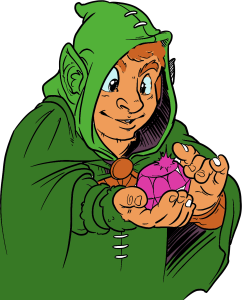By Jason Campbell
OK, as a fan, there’s nothing wrong with Tolkien as far as novels and world building. Today we’re looking at how compelling and enthralling the world of Middle Earth is and what can be learned by GMs running RPGs in their own worlds.

Tolkien’s In-depth World
Tolkien’s legendarium describes a world and in-depth creation mythos. Sure, getting through The Silmarillion can be a slog, but the mythology it describes is deep and intriguing. From the time the creator deity Eru Ilúvatar creates the universe via songs, we are treated to wondrous stories.
Many game masters inspired by Tolkien’s world immediately try to build their own worlds with origin myths and ages of heroes. But does this serve a great RPG game?
Creating Worlds for an RPG
Before I give any advice, it should be noted that if you enjoy world building, please go ahead and do it. Artists and creatives should pursue their own joys. The question we’ll explore is whether this deep world building helps to serve the core of a RPG campaign.
GMs likely will find that players will not have the patience to read or listen to long information dumps about world history and mythology. This isn’t really a knock on players, it’s core to why we’re doing this.
People read novels to experience a story, and often that involves getting lost in the background of the world the story takes place in. With this in mind they’re ready to embrace lots of intertwining story paths. Players in an RPG are there for a different reason: not to experience an existing story, but to share in creating a new story, one built around their characters.
A Happy Medium
Nothing’s black and white, and although it’s true that players’ main reason for being is to create a story around their characters, they’ll also appreciate feeling like they’re building a story in a living world. It’s often best to know a little about geography and history, but not to use all of your precious prep time in writing long prose about your world. If a GM has a bullet point list of a sentence or two about various places, or a short basic outline of past events, they will be prepared to improvise when needed, and be armed with enough basic facts to make the players feel their characters live in a full world.
Tolkien’s world is wondrous for setting a story in, but copying that length of text won’t always be an efficient use of time for GMs whose prep time is limited.
What do you think? Do you like writing mythology and world origins stories? Let us know!




